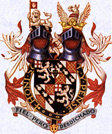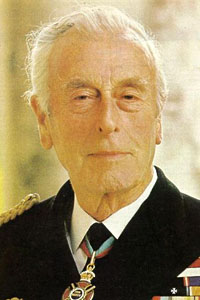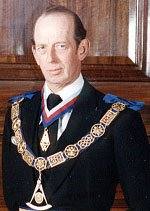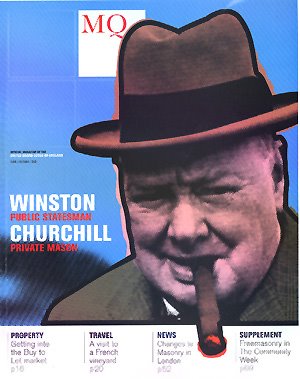





THE CHURCHILL SOCIETY
London
19/2/2004
The Secretary
Freemasons' Hall
Great Queen Street
London
Dear Sir
I quote the text of an e mail I sent to your Librarian today.
Dear Martin Cherry.
Many thanks for your kind reply. I have copied the letter in an e mail to the Library.
I note that Freemasons Hall is Dedicated to the Memory of all those who lost their lives in the first Gt War.
I wonder whether you could draw the Secretary's attention to the Society's aim of building CHURCHILL HOUSE London and refer him to the URL pages listed below and also forward to him the enclosed PDF of those pages.
I am writing to him today seeking an interview with the Board members and also enclosing further leaflets and CDs
Please read and refer the Secretary to:-
http://www.churchill-society-london.org.uk/index1.html
http://www.churchill-society-london.org.uk/chtruste.htm
(The reader does not need to look up these URLs for the text of them are paged lower down in this document.
With best wishes.
Norman Harvey Rogers
Secretary.
_________________________________
THE CHURCHILL SOCIETY
London
23/4/04
The Grand Master.
Freemasons' Hall
Great Queen Street
London
Dear Sir
On February 19th 2004 this society wrote to Freemason's Hall upon behalf of the committee seeking an appointment.
We are surprised that to date we have had not even had an acknowledgement and the committee have asked me to write and enquire why?
Yours sincerely.
Pamela Timms (Mrs).
Chairman
______________________
May 16th 2004.
There has been no reply to either of these letters to Freemason Hall.
____________________
THE CHURCHILL SOCIETY
London
30/8/04

HRH The Rt Hon. Lord Louis Mountbatten, 1st Earl Mountbatten of Burma, Viceroy of India, Admiral of the Fleet, KG, PC, GCB, OM, GCSI, GCIE, GCVO, DSO On 5 December 1952 His Royal Highness the Duke of Edinburgh, consort of the new Queen Elizabeth II, as yet uncrowned, was initiated into the secrets of Freemasonry by the Worshipful Master of Navy Lodge No 2612. He joined against his will. His uncle, Earl Mountbatten of Burma, was - in the words of an impeccable source close to the Royal Family - 'fiercely opposed' to Freemasonry, and had strongly advised Philip to have nothing to do with it. But in 1947 when Philip became engaged to Princess Elizabeth, his future father-in-law King George VI had made it plain that he expected any husband of his daughter to maintain the tradition of royal patronage of Freemasonry. George was an ardent Mason and finally extracted a promise from Philip to join the Brotherhood. George died before Philip was able to fulfil the promise, but despite his own reservations (he regarded the whole thing as a joke) and his uncle's hostility, he felt bound to honour his promise to the dead King. But having been initiated to Freemasonry as an Entered Apprentice, Philip felt honour was satisfied and he was free to act as he chose - which was to forget the whole business as quickly as possible. And while still nominally a member of the Brotherhood, the Duke has taken no active part for thirty years and has refused all invitations to climb the masonic ladder and achieve grand rank. Stephen Knight The Brotherhood Grafton Books, London, 1983 |
Dear Sir
I write on behalf of the committee to say how very disappointed - indeed surprised that the enclosed (above) copy letter has never received an acknowledgement or reply and am instructed to write to you to enquire why?
Next year is the 60th anniversary of the ending of the Second World War and the society is anxious that the subject we sought the Mason's help for, ie a feasibility study to be set in hand to build Churchill House London, was put to your entire membership via your good selves.
The society is now also anxious that
THE CHURCHILL MUSIC.
Performed by Radio Prague and Czeske TV and the Czech Philharmonic Orchestra under Vladimir Valek and already broadcast in Prague three times, is performed in St Paul's Cathedral on
Churchill's Birthday 30th November next year.
For more information please visit:-
http://www.churchill-society-london.org.uk/Review.html
To keep the narrative flowing easily you can read these reviews further down this page.
and follow the LINKS.
The work has never been performed in the UK. The reasons for this are as unknown.
If you are interested in helping I will send you another CD of the work.
We do hope that you will this time reply to these letters
Yours sincerely
Judith O'Hanlon
Secretary to the Committee.
_________________________________
THE CHURCHILL SOCIETY
London
30th August 2004.
HRH The Duke of Kent
Kensington Palace
London.
W1.
Sir
Wondering why the society had not received replies to the letters sent to you personally (and also to the Secretary of the Freemasons at Freemason's Hall, London); and observing that we wrote originally on the 19th February and sent you a request for a reply on the 23rd April - all to no avail -I must ask you to kindly reply to the society.
At the request of the committee I have written to the Secretary again today and enclose a copy of that letter.(The letter above this one)
Knowing little myself about Freemasonry I looked up their web site and was astonished to read on-
http://www.grandlodge-england.org/masonry/famous-masons.htm
that one of your over enthusiastic members has included Sir Winston Churchill (1874 - 1965) as a life time Freemason.
You may not know, but for a short period very early in his career, Churchill became a Freemason, but publicly resigned. He proved his independence of character by publishing his letter of resignation whatever the consequences to his future might be - something quite unheard of before or since (Churchill Archives Chartwell Papers.Churchill Archive Centre Cambridge).
I'm sure you will wish to have this claim amended and we now look forward to receiving a reply from you.
Yours sincerely
Norman Harvey Rogers.
General Secretary

HRH The Duke of Kent.
______________________
The society will page his reply when it arrives.
__________________
MEANWHILE
PLEASE READ THE FOLLOWING LETTER.
____________________
The Daily Telegraph
Re: Unsocial society
Date: 3 October 2004
SIR
Despite being hugely and patriotically English, I can only endorse the prescience of Kevin Myers in opting to live in Ireland.
What he says about us is completely accurate, and is tremendously dispiriting for those of us who can remember that other England, the one where care, courtesy, respect and manners were part of everyday life. Again quite correctly he identifies the culprits as the intelligentsia (although the noun is in many respects a misnomer), who have conducted a merciless and unrelenting assault on all those things that made us what we were.
Now, from the top down, we have a yobbish culture which prevails, and we have become a society motivated by spite, envy, greed, gloating, filth and voyeurism.
The England in which I was raised and educated, and for which I would gladly have laid down my life, has been stolen from us, and we are now an awful country, probably in terminal decline, ruled over by an elite who are self-serving, duplicitious and hugely incompetent.
It is time, I think, to summon back King Arthur, or bang Drake's Drum or whatever it is that we are supposed to do in time of peril.
From: Arthur Mead, Dereham, Norfolk.
_______________________
United Grand Lodge of England
Freemason's Hall, Great Queen Street, London. WC2B 5AZ.
21 September 2004.
Grand Secretary's Office
Norman Harvey Rogers, Esq
General Secretary.
The Churchill Society, London.
Ivy House, 18 Grove Lane.
Ipswich Suffolk IP4 1NR.
Dear Mr Rogers
I refer to your letter of 30th August addressed to HRH the Duke of Kent, evidently in his capacity as Grand Master of the United Grand Lodge of England. As I am the Grand Master's Masonic Secretary, I am replying to that letter on his behalf. I must also in this letter refer to a letter sent on 30th August by Judith O'Hanlon directly to "The Secretary, Freemasons' Hall" which I assume is intended for me, although its opening of "Dear Sir or Madam" does appear to leave some room for doubt.
Out of the rather confusing mass of paper I have received, let me try to clarify the facts. Neither HRH the Duke of Kent nor I previously received letters from you dated 19th February or 23'd April. The letter enclosed by Ms O'Hanlon is an original, and as a letter is unsigned. The bulk of the letter consists of a copy of an email apparently sent to a Mr Cheny - and, oddly, this email bears an original signature in ink - who is a member of staff of the Library and Museum Charitable Trust also housed within Freemasons' Hall.
On 20'" February Mr Cheny sent to me an email he had received from you asking him to forward to me a "PDF" file concerning Rutherlyn's 'The Churchill Music'. That was the last we heard from The Churchill Society until the two letters dated 30th August.
Your letter to the HRH the Duke of Kent complains that we have published erroneous information on our web site concerning Winston Churchill's career as a Freemason. That is incorrect, as is also your claim that Churchill was a Mason only "for a short period early in his career". The fact is that he was a Mason for very many years although he rarely attended meetings. A more careful reading of what we actually published on our web site would have shown you that we did not claim that he was a "life-time Freemason" either, as you incredulously assert. We simply quoted the term of his very long life, 1874 - 1965, as indeed we did for every other person mentioned there. I enclose a copy of the relevant page so that you can check this.
I also enclose a copy of the third issue of our magazine MQ which contains a full and accurate account of Churchill's involvement in Freemasonry, from which you will also note that we also say that it did not seem to have had much influence upon him. There is no evidence to support your other statement that he "proved his independence of character by publishing his letter of resignation whatever the consequences to his future might be - something quite unheard of before or since", and I am afraid that this is just nonsensical.
Your letter of 19th February appears to request an interview with members of my Board, possibly to solicit funds to assist the Society in building 'Churchill House'. It is perfectly correct that Freemasons' Hall was built as a memorial to those who lost their lives in the First World War, and, as I have noted above, that Churchill was a Freemason. I am sorry to have to disappoint you, but I am afraid that I do not believe that either of these facts suggests that The Churchill Society ought to have any reason to believe that we would consider it appropriate to be involved with the Society or any of its projects.
Yours sincerely
RAH Morrow
Grand Secretary.
________________________________
THE CHURCHILL SOCIETY
London.
Let us build wisely,
let us build surely,
let us build faithfully
let us build for the years that are to come,
and so establish here below
what we hope to find above -
a house of many mansions,
where there shall be room for all.
Winston Churchill.
Dundee.
May 4th,1908.
29/9/04
R.A.H.Morrow Esq
The Grand Secretary
United Lodge of England
Freemason's Hall
Gt Queen Street
London
Dear Mr Morrow
Thank you for at last replying to our letter dated 19th February 2004. We are much distressed that our original letter of February 19th has led to this deeply unhappy state of affairs.
To digress for a moment.
Last year we e mailed the librarian at Freemason Hall asking to see a copy of Churchill's resignation letter from the Freemasons. She replied that Freemasons Hall library had no records of Churchill's membership and it would have been unlikely for them to have been kept as he was little known at the youthful age he joined.
You now produce the Freemasons Members Journal No 3 dated 2002, the cover page of which is a blatant piece of cheap PR hack work using a life size image of Churchill's face in the late 1940's with him wearing a homburg hat and with the specious title:-
WINSTON
Public Statesman
CHURCHILL
Private Mason.

The art work for this cover page was deliberately done to create the impression that Churchill was a Freemason in the 1930's and on through the war, when in fact he had publicly resigned from the Freemasons long before the First World War. The photograph of Churchill is one taken during the war and his homburg had clearly gives a fashion date from 1938 onwards.
The inclusion of Churchill's date of birth and death so prominently on your web site is again - we suspect - meant to imply that he was a lifelong freemason.
Both inferences are deliberately dishonest.
The plausible text in the magazine about his membership, when read by people who know the history of that period, proves that Churchill quickly became disillusioned with freemasonry long before the First World War.
We note that in that article you publish a facsimile of the receipt to him which is in your library, of his joining and first year's subscription fees. If you possess that in your library then you will also possess his letter of resignation and documentation of when he ceased to pay his annual subscriptions. Again in the article you have been selective in your quotations from the Churchill Archive Papers by failing to publish his letter of resignation.
We are much surprised that the duke lends his name to such inferences and that he has not ordered this to be changed to ensure that readers know that Churchill quickly became disillusioned with freemasonry and resigned from it.
Sadly, the above facts now bring into question the truthfulness of the Freemason's claims about other famous men named on your web site.
Churchill was a libertarian, He had many lifelong friends who were masons. His written support for the formation of munition factory workers' Lodges does not justify you in claiming he was a freemason at the time. You know he was not.
His support for the munitions workers' application for a Freemason Lodge near the factory was part of his great achievement, when having been urgently appointed Minister of Munitions to solve the very serious shortage of shells in the Gt War, he met the strike leaders in London, heard and agreed with their genuine complaints and immediately resolved all the strikes within the industry by increasing pay, and - unlike freemasonry still today - gave the women factory workers the respect that all women are entitled to - with equal conditions and pay with the men.
From that moment onwards there were no shortages of ammunition.
Because you allege that the papers we sent you were - as you so say - 'a confusing mass' - we have reproduced them here in the precise order in which you and the duke received them on the 19th February this year; when both you and he decided without reference to your board to ignore them - that is - until you were forced to respond because we paged the letters as being unanswered on our web site.
We must say that we find it extraordinary that you both decided without consulting anyone in your organisation to deny your members knowledge of the contents of our original letter.
We are dismayed that in spite of Freemason's Hall having been built to the memory of all who suffered and died in the Great War - you do not even bother to consult your members as to whether they would like to help us in 2006 in honouring Churchill and his comrade's in arms who lost their lives leaving widows and orphans, and those who suffered appalling injuries in WW II.
The outcome of our original letter of the 19th February this year with Freemason Hall has come as a great shock to the committee of this society. We understood many distinguished men of achievement including many High Court judges were amongst your members, and that freemasonry was a society of men of great integrity.
It is clear from this correspondence and the cover and text of your journal No 3 that Churchill was clearly right to resign from the Freemason's. Were he alive today you would not dare to make such claims.
Surely every aspect of our correspondence should now be examined by senior judges in the Freemasonry movement so that the good name of Freemasonry can be redeemed.
On behalf of the Chairman and Committee.
Yours sincerely.
Norman Harvey Rogers.
General Secretary.
PS.
The contents of this letter and the PDF file sent to you, are paged below to enable our nearly 4 million annual internet readers to follow this correspondence. They are paged exactly as sent in the PDF to you and proves that the papers we sent to you were not. as you write above. 'a confusing mass of paper'.
We have however added additional pages to this web site page explaining to our readers exactly what our committee wanted to propose to the committee members at Freemasons Hall London. We have had to do this in the light of the above correspondence.
Resource:
The Churchill Society
Further Reading:
UK Freemasonry in the News, have the 'Brethren' finally met their Waterloo?